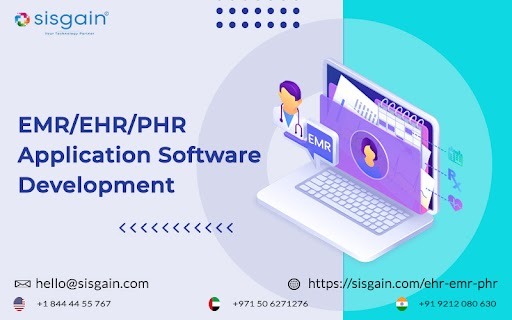#Medical Records Software
Explore tagged Tumblr posts
Text
Certified Clinical Medical Assistant: Bridging the Gap Between Doctors and Patients

In the intricate ecosystem of healthcare, the Certified Clinical Medical Assistant (CCMA) stands as a crucial linchpin, ensuring seamless communication and efficient operation within medical facilities. These professionals are uniquely positioned to bridge the gap between doctors and patients, providing essential support that enhances both patient care and the functionality of healthcare services.
The Role of a CCMA
Certified Clinical Medical Assistants wear many hats, balancing clinical duties with administrative tasks. This dual role makes them indispensable in healthcare settings, as they ensure both the smooth operation of the medical office and the delivery of quality patient care.
Clinical Responsibilities:
Patient Interaction: CCMAs often serve as the first point of contact for patients. They greet patients, take medical histories, and record vital signs. This initial interaction is crucial as it sets the tone for the patient's visit and provides the physician with essential information.
Assisting Physicians: During examinations and procedures, CCMAs assist physicians by preparing patients, handling instruments, and ensuring that the physician has everything needed for a successful exam. Their support allows physicians to focus more on diagnosing and treating patients.
Performing Tests: CCMAs are trained to perform routine laboratory tests, such as drawing blood and conducting urine analyses. They ensure that specimens are properly collected and processed, contributing to accurate and timely diagnosis.
Administrative Responsibilities:
Managing Patient Records: Accurate and up-to-date patient records are vital for effective healthcare. CCMAs are responsible for maintaining these records, ensuring that all information is accurately documented and readily accessible.
Scheduling and Coordination: CCMAs schedule appointments, manage patient flow, and coordinate with other healthcare providers. Their organizational skills help reduce wait times and improve the overall efficiency of the medical practice.
Insurance and Billing: Navigating insurance claims and billing can be complex. CCMAs assist patients with understanding their insurance coverage, handling billing inquiries, and resolving any issues that may arise. This support is essential for both patients and the financial health of the medical practice.
Enhancing Patient Care
CCMAs play a pivotal role in enhancing patient care through personalized attention and effective communication. Their ability to connect with patients on a personal level improves patient satisfaction and contributes to better health outcomes.
Personalized Care:
By addressing patient concerns, explaining procedures, and offering emotional support, CCMAs create a more comfortable and reassuring environment for patients. This personalized care is particularly important for patients who may feel anxious or uncertain about their medical visit.
Efficient Operations:
CCMAs ensure that medical facilities operate efficiently. Their ability to multitask and handle both clinical and administrative duties reduces bottlenecks, leading to shorter wait times and a more streamlined patient experience.
Effective Communication:
CCMAs serve as a critical communication link between patients and physicians. They relay important information, clarify instructions, and ensure that patients understand their treatment plans. This effective communication helps prevent misunderstandings and ensures that patients receive the care they need.
Supporting the Medical Team
CCMAs provide essential support to the entire medical team, enhancing the overall effectiveness of healthcare delivery.
Physician Support:
By handling routine tasks, CCMAs free up physicians to focus on more complex aspects of patient care. This support is invaluable in busy medical settings, where time and resources are often limited.
Team Coordination:
CCMAs coordinate with other healthcare professionals, including nurses, lab technicians, and specialists, to provide comprehensive care. Their ability to manage these interactions ensures that all members of the healthcare team are on the same page.
Training and Supervision:
Experienced CCMAs often take on roles in training and supervising new medical assistants. By sharing their knowledge and expertise, they help maintain high standards of care and ensure that new staff members are well-prepared for their roles.
The Importance of Certification
Certification Clinical Medical Assistant is a testament to a professional’s competence and commitment to excellence. Certified CCMAs have met rigorous educational and practical standards, which enhances their credibility and job prospects.
Quality Assurance:
Certification provides assurance to employers and patients that the CCMA has the necessary knowledge and skills to perform their duties effectively. It serves as a benchmark for quality in the profession.
Career Advancement:
Certified CCMAs often have more opportunities for career advancement and higher earning potential compared to their non-certified counterparts. Certification opens doors to specialized roles and leadership positions within the healthcare industry.
Conclusion
Certified Clinical Medical Assistants are integral to the healthcare system, bridging the gap between doctors and patients with their diverse skills and unwavering dedication. Their ability to perform both clinical and administrative tasks ensures that medical practices run efficiently and patients receive the highest quality of care. As the healthcare landscape continues to evolve, the demand for skilled and certified CCMAs will undoubtedly grow, further highlighting their essential role in the industry. Through their commitment to excellence and patient-centered care, CCMAs continue to make a significant impact on the lives of patients and the effectiveness of healthcare delivery.
More details do visit:
www.hrvelitercm.com
#Certification Clinical Medical Assistant#revenue cycle management#Medical billing in USA#medical records software#billing and coding in usa
0 notes
Text
Medical Records Software for Your Better Health
Looking for advanced medical records software EMR to handle all aspects of your practice more efficiently? "EMR-EHRS" has got you covered! Our cutting-edge software is designed to help you manage patient information, prescriptions, lab tests, and more. With our innovative software, you can increase care coordination, reduce errors, and improve patient outcomes. Say goodbye to paper-based documentation and hello to more accurate and error-free recording. For more information, click the link provided https://emr-ehrs.com/multi-specialty-electronic-health-records.php
0 notes
Text
Revolutionizing Healthcare: 5 Key Benefits of EHR Integrations with Sisgain's Innovative Solution

In today's digital age, the use of electronic health records (EHRs) has become increasingly prevalent in the healthcare industry. However, with the sheer volume of patient data and the need to integrate with other healthcare technology solutions, the implementation of EHR software alone may not be enough to meet the demands of healthcare providers. That's where EHR integrations come into play.
EHR integrations refer to the process of connecting EHR software with other healthcare technology solutions, such as practice management software or telemedicine platforms. In this blog post, we'll explore the five key benefits of EHR integrations for healthcare providers, and how Sisgain, a leading healthcare technology company, is helping to drive innovation in this space.
Enhanced Data Accessibility and Sharing
One of the main benefits of EHR integrations is that it allows healthcare providers to access and share patient data across different systems, enabling better collaboration and coordination of care. With EHR integrations, patient data can be easily accessed and updated in real-time, reducing the risk of errors and duplication. This not only saves time, but it can also improve patient outcomes and satisfaction.
Sisgain's EHR software development services are designed to provide healthcare providers with customized EHR integrations that streamline workflows and facilitate better collaboration between providers, patients, and other stakeholders.
Improved Efficiency and Productivity
Another key benefit of EHR integrations is that it can significantly improve efficiency and productivity in healthcare organizations. By automating manual processes and eliminating the need for duplicate data entry, healthcare providers can save time and reduce administrative burdens. EHR integrations can also improve patient flow, as providers can easily access patient data and coordinate care across different departments and specialties.
Sisgain's medical records software solutions are designed to help healthcare providers optimize their workflows and maximize efficiency. By leveraging cutting-edge technology and advanced analytics, Sisgain's medical records software can help healthcare providers streamline their operations and improve patient care.
Better Patient Engagement and Satisfaction
EHR integrations can also help healthcare providers improve patient engagement and satisfaction by providing patients with better access to their health information. With EHR integrations, patients can access their medical records and communicate with their providers through secure portals or mobile apps. This can help patients stay informed and engaged in their care, which can ultimately lead to better health outcomes.
Sisgain's EHR software development services include patient engagement solutions that enable healthcare providers to connect with patients in real-time through secure portals or mobile apps. By leveraging Sisgain's patient engagement solutions, healthcare providers can improve patient satisfaction and loyalty.
Enhanced Data Security and Privacy
Data security and privacy are major concerns for healthcare providers, as patient data is highly sensitive and must be protected at all times. EHR integrations can help healthcare providers ensure that patient data is secure and compliant with HIPAA regulations by implementing advanced security features such as encryption and access controls.
Sisgain's EMR software solutions are designed to provide healthcare providers with advanced security features that help protect patient data from unauthorized access or breaches. With Sisgain's EMR software, healthcare providers can rest assured that their patient data is secure and compliant with industry regulations.
Cost Savings and ROI
Finally, EHR integrations can help healthcare providers reduce costs and improve their return on investment (ROI) by streamlining workflows, reducing administrative burden, and improving patient outcomes. By implementing EHR integrations, healthcare providers can save time and money on manual processes, while improving the quality of care they provide.
Sisgain's healthcare technology solutions are designed to help healthcare providers maximize their ROI by providing customized EHR integrations and other advanced solutions that help improve patient care, streamline workflows, and reduce costs.
0 notes
Text







Jack Lowden as 'Vaughn' in Calibre (2018)
#he has suuuuuuch a bad time in this one. more to come where he's covered in his own blood.#This deer hunting in the woods is so Les Arbres River coded#also this is my first time succesfully making a gif not screen recording! Still not got a fucking clue how to get my hands on dicom files#without downloading like... medical x-ray software#Jack Lowden#River Cartwright#Calibre 2018#Les Arbres River#River Harkness
79 notes
·
View notes
Text
oeHealth – Clinic and Hospital Management System in Odoo v16
The newly updated oeHealth—Hospital Management Solution with Odoo 16—has some innovative capabilities for a more smooth health centre management experience.
#Odoo Hospital Management Software#Hospital Management System#Clinical Management Software#Electronic Medical Record#Electronic Health Record#Odoo v16#Hospital Management Software
2 notes
·
View notes
Text
EMR/EHR - Electronic Health Records Software - CureMD

Transform your practice with CureMD's cloud-based Electronic Health Record in a way you never imagined before. With a powerful knowledge base, CureMD medical recording software is built for usability, performance, and reliability. It delivers advanced features, previously available in systems costing thousands of dollars, at a fraction of the cost.
Specialty-Focused EHR
Our specialty-focused CureMD solution gives you point-and-click selection, customization tools and much more to support your unique practice style, preferences and workflow. Let's explore what type of EHR customization we offer for different specialties.
EHR for Oncology EHR for Cardiology EHR for Dermatology EHR for Endocrinology EHR for Gastroenterology EHR for Nephrology EHR for Neurology EHR for Allergy Immunology EHR for Otolaryngology EHR for Ophthalmology EHR for Rheumatology and EHR for Urology
With CureMD software for medical records, you don't spend thousands of dollars on set up, maintenance and licensing fees, and you don't pay for workflow-driven customization or dedicated support. Learn more about CureMD EHR, visit official website: https://www.curemd.com/
1 note
·
View note
Text
Not to mention the actual dystopian nightmare of medical implant companies going under and leaving users without a way to access proprietary software.
abandonware should be public domain. force companies to actively support and provide products if they don't wanna lose the rights to them
#i found it and i think its a really important topic#abandonware can be proprietary medical software and that shit is serious#i mean all of this is serious#i try to participate where i can in archival piracy#im proud to say im responsible for records of some otherwise lost software and media#but i can only hope to do that for something yknow serious
121K notes
·
View notes
Text
Pediatric Electronic Medical Records (EMR) Software Market Region Insights | Industry Trends, Growth and Size By Forecast 2025 - 2032
The Latest Trending Pediatric Electronic Medical Records (EMR) Software Market sector is on the brink of remarkable evolution, with projections indicating robust growth and groundbreaking technological advancements by 2032. A recent comprehensive market research report highlights the sector's promising trajectory, fueled by key drivers including expanding market size, increasing market share, and the emergence of innovative trends.
This comprehensive report provides key insights into the Pediatric Electronic Medical Records (EMR) Software market, exploring critical market segmentation and definitions. It highlights the essential components driving growth, offering a clear picture of the industry's trajectory. Utilizing SWOT and PESTEL analyses, the report evaluates the market's strengths, weaknesses, opportunities, and threats, while also considering political, economic, social, technological, environmental, and legal factors that impact the market landscape.
The study offers valuable insights into the competitive landscape, highlighting recent developments and geographical distribution across key regions. Expert competitor analysis provides a detailed understanding of market dynamics, offering strategic guidance for businesses and investors.
With robust analysis and future projections, this report serves as a vital resource for stakeholders looking to capitalize on emerging opportunities and navigate challenges in the Pediatric Electronic Medical Records (EMR) Software market.
What is the projected market size & growth rate of the Pediatric Electronic Medical Records (EMR) Software Market?
Market Analysis and Size
The pediatric electronic medical records (EMR) software market is majorly used in healthcare is its ability to streamline and centralize patient information for pediatricians. This software facilitates efficient management of children's health records, including medical history, immunizations, growth charts, and developmental milestones. Pediatric EMR software enhances collaboration among healthcare providers by providing a comprehensive and easily accessible electronic platform, improves accuracy in diagnosis and treatment planning, and ultimately contributes to better pediatric patient care.
Data Bridge Market Research analyses the global pediatric electronic medical records (EMR) software market, which was USD 31.95 billion in 2023, is expected to reach USD 52.88 billion by 2031, at a CAGR of 6.50% during the forecast period 2024 to 2031. In addition to the insights on market scenarios such as market value, growth rate, segmentation, geographical coverage, and major players, the market reports curated by the Data Bridge Market Research also include depth expert analysis, patient epidemiology, pipeline analysis, pricing analysis, and regulatory framework.
Browse Detailed TOC, Tables and Figures with Charts which is spread across 350 Pages that provides exclusive data, information, vital statistics, trends, and competitive landscape details in this niche sector.
This research report is the result of an extensive primary and secondary research effort into the Pediatric Electronic Medical Records (EMR) Software market. It provides a thorough overview of the market's current and future objectives, along with a competitive analysis of the industry, broken down by application, type and regional trends. It also provides a dashboard overview of the past and present performance of leading companies. A variety of methodologies and analyses are used in the research to ensure accurate and comprehensive information about the Pediatric Electronic Medical Records (EMR) Software Market.
Get a Sample PDF of Report - https://www.databridgemarketresearch.com/request-a-sample/?dbmr=global-pediatric-emr-software-market
Which are the driving factors of the Pediatric Electronic Medical Records (EMR) Software market?
The driving factors of the Pediatric Electronic Medical Records (EMR) Software market include technological advancements that enhance product efficiency and user experience, increasing consumer demand driven by changing lifestyle preferences, and favorable government regulations and policies that support market growth. Additionally, rising investment in research and development and the expanding application scope of Pediatric Electronic Medical Records (EMR) Software across various industries further propel market expansion.
Pediatric Electronic Medical Records (EMR) Software Market - Competitive and Segmentation Analysis:
Global Pediatric Electronic Medical Records (EMR) Software Market, By Product Type (Cloud Based, On Premises), Applications (Large Enterprise, Small and Medium-sized Enterprises (SMEs), others), End Users (Hospitals, Diagnostic Centers, Others), Components (Software Services, Consulting, Hardware) – Industry Trends and Forecast to 2032.
How do you determine the list of the key players included in the report?
With the aim of clearly revealing the competitive situation of the industry, we concretely analyze not only the leading enterprises that have a voice on a global scale, but also the regional small and medium-sized companies that play key roles and have plenty of potential growth.
Which are the top companies operating in the Pediatric Electronic Medical Records (EMR) Software market?
Some of the major players operating in the global pediatric electronic medical records (EMR) software market are:
Epic Systems Corporation (U.S.)
MEDICAL Information Technology Inc. (U.S.)
SAP SE (Germany)
META Solutions (U.S.)
Elinext (U.S.)
EPIC Systems Corporation (U.S.)
Oracle (U.S.)
Optum Inc. (U.S.)
Cerner Corporation (U.S.)
Change Healthcare (U.S.)
Koninklijke Philips N.V. (Netherlands)
athenahealth (U.S.)
eClinicalWorks (U.S.)
Alltech (U.S.)
ADM (U.S.)
Short Description About Pediatric Electronic Medical Records (EMR) Software Market:
The Global Pediatric Electronic Medical Records (EMR) Software market is anticipated to rise at a considerable rate during the forecast period, between 2025 and 2032. In 2024, the market is growing at a steady rate and with the rising adoption of strategies by key players, the market is expected to rise over the projected horizon.
North America, especially The United States, will still play an important role which can not be ignored. Any changes from United States might affect the development trend of Pediatric Electronic Medical Records (EMR) Software. The market in North America is expected to grow considerably during the forecast period. The high adoption of advanced technology and the presence of large players in this region are likely to create ample growth opportunities for the market.
Europe also play important roles in global market, with a magnificent growth in CAGR During the Forecast period 2025-2032.
Pediatric Electronic Medical Records (EMR) Software Market size is projected to reach Multimillion USD by 2032, In comparison to 2025, at unexpected CAGR during 2025-2032.
Despite the presence of intense competition, due to the global recovery trend is clear, investors are still optimistic about this area, and it will still be more new investments entering the field in the future.
This report focuses on the Pediatric Electronic Medical Records (EMR) Software in global market, especially in North America, Europe and Asia-Pacific, South America, Middle East and Africa. This report categorizes the market based on manufacturers, regions, type and application.
Get a Sample Copy of the Pediatric Electronic Medical Records (EMR) Software Report 2025
What are your main data sources?
Both Primary and Secondary data sources are being used while compiling the report. Primary sources include extensive interviews of key opinion leaders and industry experts (such as experienced front-line staff, directors, CEOs, and marketing executives), downstream distributors, as well as end-users. Secondary sources include the research of the annual and financial reports of the top companies, public files, new journals, etc. We also cooperate with some third-party databases.
Geographically, the detailed analysis of consumption, revenue, market share and growth rate, historical data and forecast (2025-2032) of the following regions are covered in Chapters
What are the key regions in the global Pediatric Electronic Medical Records (EMR) Software market?
North America (United States, Canada and Mexico)
Europe (Germany, UK, France, Italy, Russia and Turkey etc.)
Asia-Pacific (China, Japan, Korea, India, Australia, Indonesia, Thailand, Philippines, Malaysia and Vietnam)
South America (Brazil, Argentina, Columbia etc.)
Middle East and Africa (Saudi Arabia, UAE, Egypt, Nigeria and South Africa)
This Pediatric Electronic Medical Records (EMR) Software Market Research/Analysis Report Contains Answers to your following Questions
What are the global trends in the Pediatric Electronic Medical Records (EMR) Software market?
Would the market witness an increase or decline in the demand in the coming years?
What is the estimated demand for different types of products in Pediatric Electronic Medical Records (EMR) Software?
What are the upcoming industry applications and trends for Pediatric Electronic Medical Records (EMR) Software market?
What Are Projections of Global Pediatric Electronic Medical Records (EMR) Software Industry Considering Capacity, Production and Production Value? What Will Be the Estimation of Cost and Profit? What Will Be Market Share, Supply and Consumption? What about Import and Export?
Where will the strategic developments take the industry in the mid to long-term?
What are the factors contributing to the final price of Pediatric Electronic Medical Records (EMR) Software?
What are the raw materials used for Pediatric Electronic Medical Records (EMR) Software manufacturing?
How big is the opportunity for the Pediatric Electronic Medical Records (EMR) Software market?
How will the increasing adoption of Pediatric Electronic Medical Records (EMR) Software for mining impact the growth rate of the overall market?
How much is the global Pediatric Electronic Medical Records (EMR) Software market worth? What was the value of the market In 2024?
Who are the major players operating in the Pediatric Electronic Medical Records (EMR) Software market? Which companies are the front runners?
Which are the recent industry trends that can be implemented to generate additional revenue streams?
What Should Be Entry Strategies, Countermeasures to Economic Impact, and Marketing Channels for Pediatric Electronic Medical Records (EMR) Software Industry?
Customization of the Report
Can I modify the scope of the report and customize it to suit my requirements? Yes. Customized requirements of multi-dimensional, deep-level and high-quality can help our customers precisely grasp market opportunities, effortlessly confront market challenges, properly formulate market strategies and act promptly, thus to win them sufficient time and space for market competition.
Inquire more and share questions if any before the purchase on this report at - https://www.databridgemarketresearch.com/inquire-before-buying/?dbmr=global-pediatric-emr-software-market
Detailed TOC of Global Pediatric Electronic Medical Records (EMR) Software Market Insights and Forecast to 2032
Introduction
Market Segmentation
Executive Summary
Premium Insights
Market Overview
Pediatric Electronic Medical Records (EMR) Software Market By Type
Pediatric Electronic Medical Records (EMR) Software Market By Function
Pediatric Electronic Medical Records (EMR) Software Market By Material
Pediatric Electronic Medical Records (EMR) Software Market By End User
Pediatric Electronic Medical Records (EMR) Software Market By Region
Pediatric Electronic Medical Records (EMR) Software Market: Company Landscape
SWOT Analysis
Company Profiles
Continued...
Purchase this report – https://www.databridgemarketresearch.com/checkout/buy/singleuser/global-pediatric-emr-software-market
Data Bridge Market Research:
Today's trends are a great way to predict future events!
Data Bridge Market Research is a market research and consulting company that stands out for its innovative and distinctive approach, as well as its unmatched resilience and integrated methods. We are dedicated to identifying the best market opportunities, and providing insightful information that will help your business thrive in the marketplace. Data Bridge offers tailored solutions to complex business challenges. This facilitates a smooth decision-making process. Data Bridge was founded in Pune in 2015. It is the product of deep wisdom and experience.
Contact Us:
Data Bridge Market Research
US: +1 614 591 3140
UK: +44 845 154 9652
APAC: +653 1251 975
Email:- [email protected]
Browse More Reports:
Membrane Separation Technology Market
Composite Cardboard Tube Market
Sunflower Oil Market
Pediatric Electronic Medical Records (EMR) Software Market
Autonomous/Self-Driving Cars Market
#Pediatric Electronic Medical Records (EMR) Software Market#Pediatric Electronic Medical Records (EMR) Software Market Size#Pediatric Electronic Medical Records (EMR) Software Market Share#Pediatric Electronic Medical Records (EMR) Software Market Trends#Pediatric Electronic Medical Records (EMR) Software Market Growth#Pediatric Electronic Medical Records (EMR) Software Market Analysis#Pediatric Electronic Medical Records (EMR) Software Market Scope & Opportunity#Pediatric Electronic Medical Records (EMR) Software Market Challenges#Pediatric Electronic Medical Records (EMR) Software Market Dynamics & Opportunities#Pediatric Electronic Medical Records (EMR) Software Market Competitor's Analysis
0 notes
Text
https://niftyhms.com/blog/electronic-medical-records-for-clinics-in-naples/
#Appointment Scheduling Software in Naples#Clinic Management Software in Naples#Clinic Operations Management in Naples#Clinic Software in Naples#Digital Health Records in Naples#EHR Software in Naples#Electronic Health Records in Naples#Healthcare IT Solutions in Naples#Healthcare Management Solutions in Naples#Healthcare Software Solutions in Naples#Healthcare Solutions in Naples#HIPAA-compliant Software in Naples#Medical Practice Management Software in Naples#Medical Records Software in Naples#Medical Software for Clinics in Naples#Naples Healthcare Management#Naples Medical Software#Patient Data Management in Naples#Patient Record Management in Naples
0 notes
Text
How Medical Records Software Improves Patient Engagement and Satisfaction

In the rapidly evolving landscape of healthcare, patient engagement and satisfaction have become paramount. Medical records software, also known as electronic health records (EHR) or electronic medical records (EMR), plays a crucial role in enhancing these aspects. This article explores how medical records software contributes to improved patient engagement and satisfaction.
Streamlined Access to Information
One of the primary ways medical records software improves patient engagement is by providing streamlined access to health information. Patients can access their medical records, test results, and treatment plans through secure online portals. This accessibility empowers patients to take an active role in their healthcare, leading to better informed decisions and a greater sense of control over their health.
Enhanced Communication
Medical records software facilitates enhanced communication between patients and healthcare providers. Features such as secure messaging allow patients to communicate directly with their doctors, ask questions, and receive timely responses. This continuous communication fosters a stronger patient-provider relationship, leading to increased trust and satisfaction.
Improved Appointment Management
Medical records software simplifies appointment scheduling and management. Patients can book, reschedule, or cancel appointments online without the need to call the clinic. Automated reminders sent via email or SMS reduce the likelihood of missed appointments, ensuring patients receive timely care. The convenience of managing appointments online contributes to a positive patient experience.
Personalized Care Plans
With medical records software, healthcare providers can create and manage personalized care plans tailored to each patient’s specific needs. By having comprehensive access to a patient’s medical history, providers can make informed decisions and recommend treatments that are most effective for the individual. Personalized care plans demonstrate a commitment to the patient’s unique health journey, enhancing satisfaction.
Real-Time Updates
Medical records software enables real-time updates to patient information. As soon as new test results or treatment notes are available, patients can access them through the portal. This immediacy ensures that patients are always up-to-date with their health status, reducing anxiety and uncertainty. Real-time updates also allow for quicker adjustments to treatment plans if needed, ensuring optimal care.
Access to Educational Resources
Many medical records software systems include access to educational resources tailored to a patient’s condition. These resources may include articles, videos, and links to reputable websites. Educated patients are more likely to adhere to treatment plans, understand their condition, and take proactive steps toward managing their health. Providing educational resources within the software fosters a sense of empowerment and engagement.
Enhanced Coordination of Care
Medical records software improves the coordination of care among multiple healthcare providers. When specialists, primary care physicians, and other healthcare professionals have access to a patient’s complete medical history, they can collaborate more effectively. This seamless coordination reduces the risk of redundant tests, conflicting treatments, and medical errors. Patients benefit from a cohesive and integrated approach to their care, which enhances satisfaction.
Patient Feedback and Surveys
Many medical records software systems incorporate features for collecting patient feedback and conducting surveys. Patients can provide input on their experience, allowing healthcare providers to identify areas for improvement. Actively seeking and responding to patient feedback demonstrates a commitment to quality care and continuous improvement, leading to higher levels of patient satisfaction.
Secure and Confidential
Security and confidentiality are critical concerns in healthcare. Medical records software employs robust encryption and security measures to protect patient data. Patients can trust that their sensitive information is secure, which builds confidence and trust in the healthcare system. Knowing that their data is protected enhances patient satisfaction and encourages engagement with the software.
Simplified Billing and Payments
Medical records software often includes features for managing billing and payments. Patients can view their bills, make payments, and track their payment history online. This transparency and convenience simplify the financial aspects of healthcare, reducing stress and improving the overall patient experience.
Conclusion
Medical records software is a powerful tool for improving patient engagement and satisfaction. By providing streamlined access to information, enhancing communication, simplifying appointment management, and offering personalized care plans, medical records software empowers patients to take an active role in their healthcare. Real-time updates, access to educational resources, enhanced coordination of care, patient feedback mechanisms, and secure data management further contribute to a positive patient experience. As healthcare continues to evolve, the role of medical records software in fostering patient engagement and satisfaction will only become more significant.
For more details do visit:
www.hrvelitercm.com
#medical records software#revenue cycle management#certified clinical medical assistant#billing and coding in usa
0 notes
Text
Transforming Healthcare with Electronic Health Record Software

What is Electronic Health Record Software?
Electronic Health Record (EHR) Software is a digital platform designed to store and manage patient health information securely. It replaces traditional paper records, enabling healthcare providers to access, update, and share patient data in real time. This advanced technology improves clinical workflows, streamlines administrative tasks, and enhances patient care quality.
Benefits of an Integrated EHR Solution
Centralized Patient Data: All medical information is stored in one place, making it easily accessible for accurate decision-making.
Automation of Administrative Tasks: Reduces manual work such as scheduling, billing, and coding, saving time and minimizing errors.
Improved Patient Care: Provides healthcare providers with detailed and up-to-date medical histories, ensuring better diagnosis and treatment.
Regulatory Compliance: Ensures adherence to healthcare regulations like HIPAA to maintain patient data security.
Seamless Coordination: Facilitates data sharing across healthcare teams to improve collaboration and patient outcomes.
Why Choose Affordable EHR for Private Practice?
Private practices require cost-effective solutions without compromising on quality. Affordable EMR/EHR software offers:
Budget-Friendly Solutions: Tailored pricing to fit the financial constraints of smaller practices.
User-Friendly Features: Simplifies workflows, enabling healthcare providers to focus on patient care.
Scalable Systems: Grows alongside the practice, adapting to new requirements as needed.
Specialty-Specific Capabilities: Provides tools and templates designed for various medical specialties.
Key Features of the Best EHR for Private Practice
Customizable Templates: Allows practices to adjust workflows and documentation to meet their unique needs.
Telemedicine Integration: Expands healthcare access by enabling virtual consultations and remote patient monitoring.
Billing and Coding Tools: Streamlines the revenue cycle by automating claim submissions and reducing errors.
E-Prescription: Simplifies medication management, enhances accuracy, and improves patient convenience.
Interoperability: Ensures seamless data exchange with labs, pharmacies, and other healthcare systems.
Why Choose PrognoCIS EHR Software?
PrognoCIS EHR Software is an industry-leading solution designed specifically for private practices. It offers:
Affordable Pricing: Ensures cost-effectiveness for smaller practices.
Comprehensive Features: Combines charting, billing, telemedicine, and compliance tools in one platform.
Patient Engagement Tools: Includes reminders, secure messaging, and patient portal access to improve communication and satisfaction.
Regulatory Compliance: Assists practices in meeting HIPAA and other healthcare regulations.
Conclusion
Selecting the right EMR/EHR software is crucial for the success of any healthcare practice. PrognoCIS EHR Software offers an affordable and integrated EHR solution tailored to the unique needs of private practices. With its advanced features, user-friendly design, and focus on improving efficiency and patient care, PrognoCIS stands out as one of the best EHR options for private practices. Visit PrognoCIS EHR Software to learn how it can elevate your practice’s performance and patient satisfaction.
#electronic health records software#ehr software#ehr solutions#electronic health records system#prognocis ehr#healthtech#medical office software#prognocis emr
0 notes
Text
Request an EMR Software Demo | ContinuumCloud
Looking for an EMR software demo? Discover how ContinuumCloud's tailored EMR solution can streamline patient management, improve treatment planning, and ensure compliance with industry regulations. Request a demo today to see how our software supports behavioral health practices.
0 notes
Text
oeHealth - Medical and Hospital management software in Odoo v16
Now Hospital Management Software (HMS)—oeHealth—is available in the latest version of Odoo 16, which is a web-based complete package of Electronic Medical Records (EMR), Electronic Health Records (EHR), and Hospital Information Solutions (HIS) that can manage various aspects of any hospital, clinic, or healthcare centres.
#Odoo Hospital Management Software#Hospital Management System#Clinical Management Software#Electronic Medical Record#Electronic Health Record#Odoo v16#Hospital Management Software
2 notes
·
View notes
Link
#pioneering marketdigits consulting and advisory private limited#mental health software market#electronic health records#electronic medical records#mhealth market
0 notes
Text
Discover how 1st Providers Choice EMR Software can revolutionize your rheumatology practice by offering a comprehensive, user-friendly solution designed specifically for rheumatologists. This EMR system integrates patient management, medical history tracking, treatment plans, and billing, all in one platform. With features tailored for rheumatology, including specialized templates and easy access to patient data, 1st Providers Choice EMR ensures improved patient care, better clinical decision-making, and increased operational efficiency. Learn more about how this software can enhance your practice today.
#Rheumatology EMR software#EMR for rheumatology practices#Rheumatology electronic medical records#Rheumatology practice management software#Rheumatology patient management#Rheumatology billing and scheduling software#Best EMR for rheumatologists
0 notes